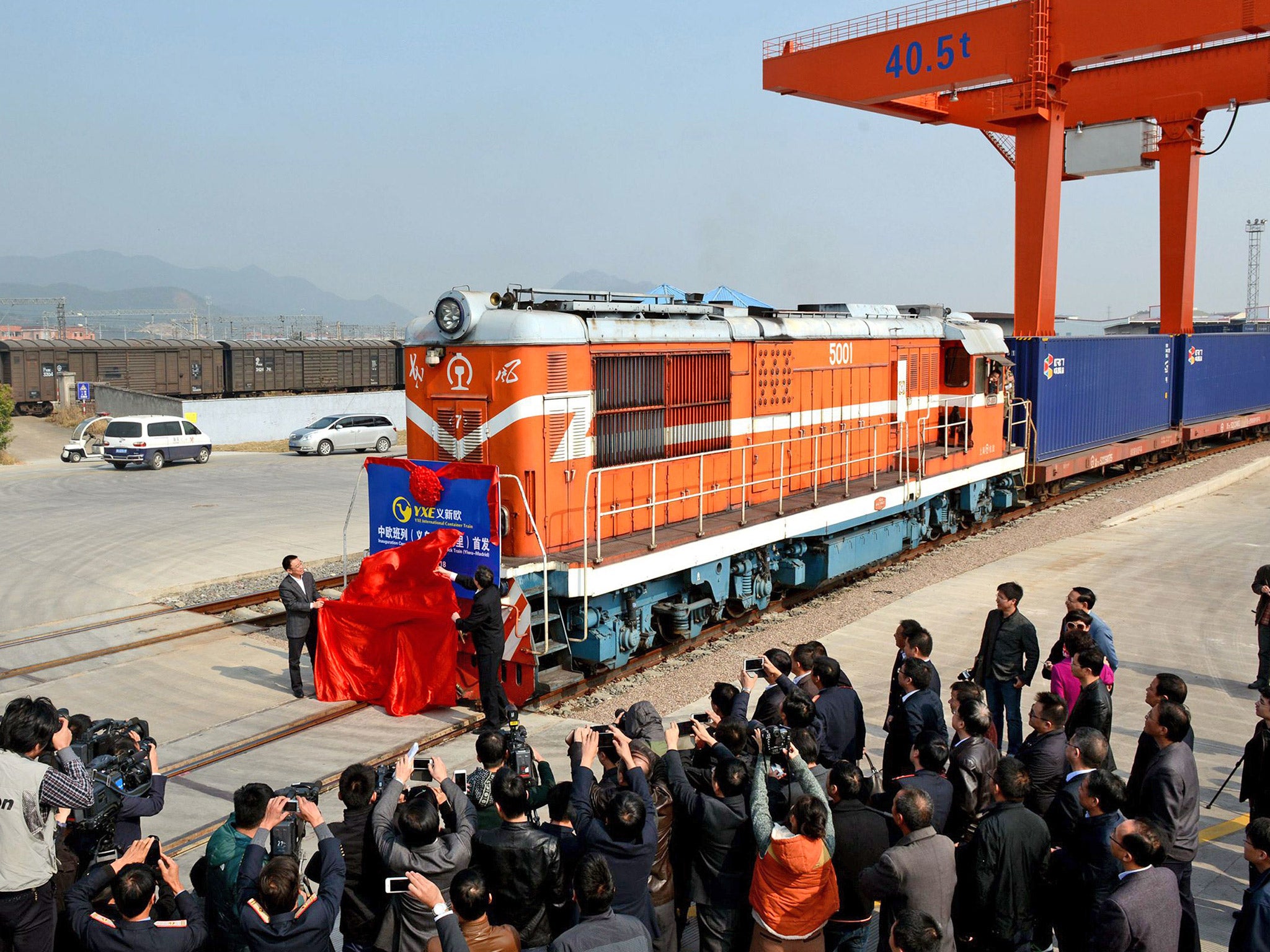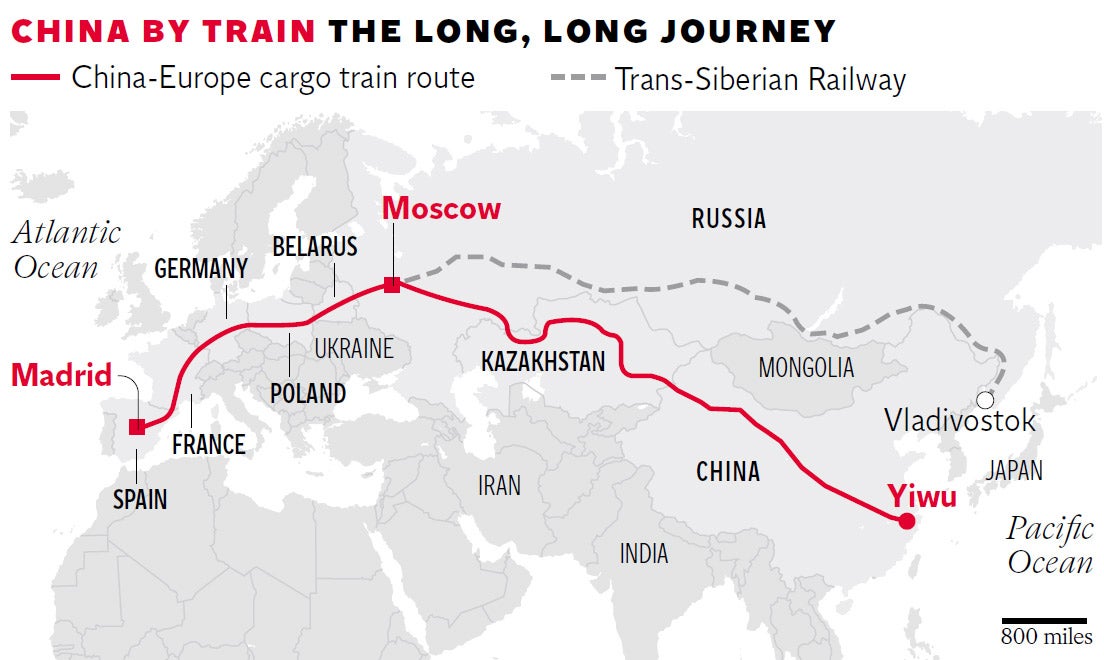China to Spain cargo train: Successful first 16,156-mile round trip on world's longest railway brings promise of increased trade
Before the Yixin'ou line was opened, goods traded between the EU and China depended on inefficient sea or air transport, meaning higher prices in Europe

Your support helps us to tell the story
From reproductive rights to climate change to Big Tech, The Independent is on the ground when the story is developing. Whether it's investigating the financials of Elon Musk's pro-Trump PAC or producing our latest documentary, 'The A Word', which shines a light on the American women fighting for reproductive rights, we know how important it is to parse out the facts from the messaging.
At such a critical moment in US history, we need reporters on the ground. Your donation allows us to keep sending journalists to speak to both sides of the story.
The Independent is trusted by Americans across the entire political spectrum. And unlike many other quality news outlets, we choose not to lock Americans out of our reporting and analysis with paywalls. We believe quality journalism should be available to everyone, paid for by those who can afford it.
Your support makes all the difference.The first train to complete a journey on the world’s longest railway line, connecting Spain and China, has returned home. The 16,156-mile round trip on the new Yixin’ou cargo line through China, Kazakhstan, Belarus, Poland, Germany, France and Spain took four months. The train arrived laden with cheap goods and returned to China with expensive olive oil.
The 82-container cargo train began its journey in November in the eastern Chinese city of Yiwu. Packed full of Christmas trinkets and decorations, stationery and craft products, it arrived in Madrid on 14 December, in time for the thousands of small shops and Christmas markets to stock up on the cheap Chinese goods.
Before the Yixin’ou line was opened, goods traded between Europe and China depended on inefficient sea or air transport, meaning higher prices in Europe.
“The cargo train will boost economic exchange between Yiwu, the world’s largest small commodity market, and Madrid, Europe’s largest small commodity market,” said Li Huihuan, manager of Yiwu CF International Logistics, which operates the train.

The train returned to Yiwu last weekend, carrying olive oil and other Spanish-made goods that are becoming popular in an increasingly affluent China.
The line is 450 miles longer than the previous record holder, the Trans-Siberian Railway, which connects Vladivostok in the east of Russia, to Moscow. State media in Russia greeted the opening of the Yixin’ou by pointing out that containers on the new line must be changed three times during the journey from China to Spain, because tracks in the seven countries are of different gauges.
Nonetheless, the line’s supporters hope that it will boost trade between the EU and China, which already stands at more than €1bn a day. Traders at both ends of the new track point out that the train provides a vastly faster service than seaborne goods and is substantially cheaper than air cargo.
Yiwu, a city of 1.2 million, is a booming example of modern China. The city’s small commodities market is growing at an exponential rate and in 2014 combined imports and exports were valued at $23.7bn, a 28.6 per cent increase on the previous 12 months.
According to the Chinese-state run news agency, Xinhua, 60 per cent of the world’s Christmas trinkets are originally bought and sold in Yiwu’s annual Christmas market. While traders in Madrid’s Plaza Mayor and elsewhere will welcome the opening of the Yixin’ou railway, which should see the prices they pay for nativity scenes and Christmas lights fall, Yiwu is also famous for being the centre of the world’s illegal counterfeiting industry.
Eamonn Fingleton wrote in his book about China’s rapid economic growth that “Yiwu… functions as a sort of ‘Wall Street’ for the counterfeiting industry, providing a vast marketplace where… 100,000 counterfeit products are openly traded and 2,000 metric tonnes of fakes change hands daily”.
Join our commenting forum
Join thought-provoking conversations, follow other Independent readers and see their replies
Comments